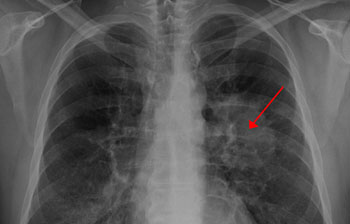Cancer Screening Trial Shows Survival Rate Increases When Disease Caught Early
By MedImaging International staff writers
Posted on 13 Jun 2016
The first ever UK Lung cancer Screening trial (UKLS) has shown that identifying early stage cancer in patients with a high risk of developing the disease can increase their chance of survival for five years or longer, by 73%.Posted on 13 Jun 2016
The aim of the study was to highlight the need for a screening program for high-risk groups. Part of the reason lung cancer outcomes in the UK are poor, is because around 70% of patients first present to specialist care when it is already too late for effective treatment.

Image: The UK Lung cancer Screening trial found screening high-risk individuals can identify those individuals with early stage disease, and significantly increase their chance of long-term survival (Photo courtesy of Queen Mary University of London).
The study was led by researchers from the University of Liverpool (Liverpool, UK), Liverpool Heart & Chest Hospital, Royal Brompton & Harefield Hospital, and Papworth Hospital. The researchers screened patients using a technology called Low Dose Computed Tomography (LDCT) for the randomized controlled trial.
The results of the new trial showed that the clinical outcome is greatly improved for high-risk patients identified with early stage disease. Such patients have up to a 73% better chance of survival for five years or longer. More than 80% of such patients had surgery to treat the cancer.
Dr Edward Gaynor, Clinical lead on cancer for Liverpool Clinical Commissioning Group, said: "The UKLS study is a further piece of evidence that low dose CT in high risk individuals can save lives. This is particularly relevant in Liverpool where we have one of the highest incidences and mortality rates of lung cancer and the Liverpool Clinical Commissioning Group is actively exploring how it can apply the findings in this study to the benefit of Liverpool through the Healthy Lung Project."
Related Links:
University of Liverpool














